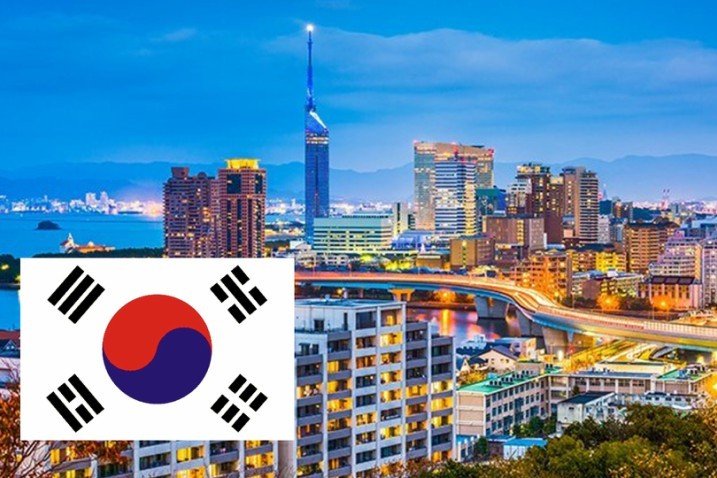S. Korea to take 6,000 plus Nepali workers in 2022

By A Staff Reporter
Kathmandu, Apr. 5: South Korea is likely to take more than 6,000 Nepali workers under the Employment Permit System (EPS) in 2022 – a figure significantly higher compared with COVID-19-disrupted years of 2020 and 2021.
It is taking in 59,000 workers from 16 EPS partner countries. About 35,530 will be new while 23,470 will be re-entry including committed workers.
“It is confirmed that we are taking about 6,000 workers from Nepal. However, since the demand for Nepali workers in Korea is quite good, the number might go up to match with pre-pandemic period,” said Kim Un Duck, Representative of Human Resources Development Service of Korea that manages the EPS Centre in Nepal.
Korea had taken 7000 to 8000 workers from Nepal from 2016-2019. However, COVID-19 pandemic caused a sharp fall to 955 workers in 2020 and 389 in 2021.
Likewise, since other major source markets like Vietnam, Cambodia and Myanmar are under growing COVID-19 attack, Korea is reluctant to take a large number of workers from those countries. In that case, number of Nepali workers destined to reach Korea might increase, said Kim.
Similarly, since Nepal, Vietnam and Myanmar are the major source of agriculture workers among the six nations for Korea, ravaging COVID-19 in the latter two countries means the number of workers required in farming could be managed from Nepal as well.
In the first three months of this year, 1,285 Nepalis – 752 new and 533 re-entry – have reached South Korea for employment.
According to the EPS Centre in Kathmandu, currently, 28,128 Nepalis are employed in Korea. The largest number – 19,654 – are employed in manufacturing sector, 8,423 in agriculture, 41 in fishing, 7 in construction and 3 in service.
Meanwhile, Korea has changed the quarantine and PCR test provisions for Nepali workers it is taking.
New workers going to Korea from April 1 need to stay in a quarantine for 3 nights and 4 days (including training period of about 2 days) while workers making re-entry need to quarantine themselves for 2 nights and 3 days. But Nepalis testing negative for coronavirus after entering Korea need not stay in quarantine.
Likewise, quarantine period in Nepal for the workers flying to Korea is reduced to 2 nights and 3 days.
As per the earlier provisions, workers reaching Korea had to stay in 7-day quarantine in their home country before flying to Korea and 14 days after landing in the country.
However, all workers going to Korea under EPS must be fully vaccinated against COVID-19 with the vaccines recognised by the World Health Organisation (WHO). Such vaccines include Pfizer, Janssen, Moderna, AstraZeneca, Sinopharm, Covishield, Sinovac and Covaxin.
According to Kim, PCR test is reduced to one time, within 48 hours before boarding the flight, from earlier three times in the time span of 7 days before the flight, 48 hours before and 5 hours before (RDT) the flight.
He said that from June this year, all quarantine and PCR requirements will be waived off.
Earlier in March, Nepal had urged South Korea to allow Nepali workers who had passed language and skill proficiency tests and were selected for jobs in the country and waiting to go to Korea to join their work.
Minister for Labour, Employment and Social Security Krishna Kumar Shrestha had requested Kim to allow the eligible Nepali workers. However, Kim said that since commercial flights couldn’t be operated from Korea as tourism activities were restricted due to the pandemic, the country had to operate chartered flights to carry workers.
Recent News

Do not make expressions casting dout on election: EC
14 Apr, 2022
CM Bhatta says may New Year 2079 BS inspire positive thinking
14 Apr, 2022
Three new cases, 44 recoveries in 24 hours
14 Apr, 2022
689 climbers of 84 teams so far acquire permits for climbing various peaks this spring season
14 Apr, 2022
How the rising cost of living crisis is impacting Nepal
14 Apr, 2022
US military confirms an interstellar meteor collided with Earth
14 Apr, 2022
Valneva Covid vaccine approved for use in UK
14 Apr, 2022
Chair Prachanda highlights need of unity among Maoist, Communist forces
14 Apr, 2022
Ranbir Kapoor and Alia Bhatt: Bollywood toasts star couple on wedding
14 Apr, 2022
President Bhandari confers decorations (Photo Feature)
14 Apr, 2022











